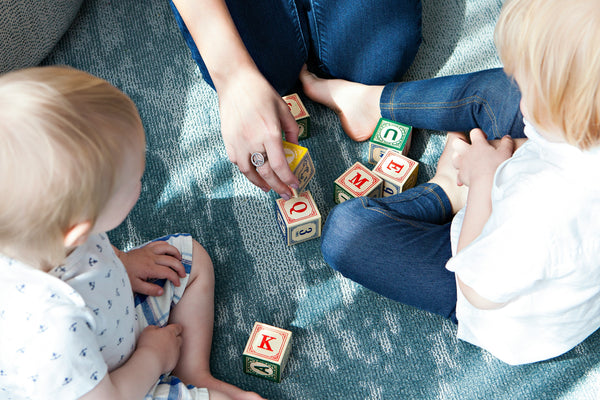What to Do If Your Kid Only Poops Every Few Days
share this article

If your kid only poops every two, three, or even four days, you’re not alone. In fact, it’s one of the most common gut health concerns parents face. But while some variation in bathroom habits is normal, pooping every few days often signals constipation, even if your kid doesn’t seem bothered.
The good news? There are simple, nutrition-first strategies that can help get things moving more regularly (and comfortably).
Is It Really Constipation?
The medical definition of constipation in kids includes:
-
Fewer than three bowel movements per week
-
Hard, dry, or pebble-like stools
-
Pain or straining during pooping
-
Sometimes stool accidents or withholding behavior (1)
Even if your kid isn’t complaining, pooping every few days means stool is sitting in the colon longer than it should, drying out and becoming harder to pass. Over time, this can lead to:
-
Harder, larger stools
-
Painful poops
-
Avoidance of going altogether
5 Steps to Help Your Kid Poop More Regularly
1. Boost Daily Fiber (Consistently)
Fiber helps bulk up and soften stool, but most kids get far less than the recommended amount (2).
Add:
-
Fruits like pears, kiwi, berries, and apples with skin
-
Veggies (especially carrots, peas, and sweet potatoes)
-
Whole grains (oats, whole wheat bread, lentils, popcorn)
-
A daily scoop of Growing Up Prebiotics, which combines chicory root inulin and HMOs to gently feed gut bacteria and help support stool softness (3)
2. Check Hydration Levels
Water works hand-in-hand with fiber. Without enough fluids, fiber can backfire and make stools harder.
Hydration tips:
-
Keep a water bottle nearby all day
-
Add water-rich foods (cucumbers, watermelon, oranges)
-
For stubborn pooping patterns, hydration powders with magnesium and potassium (like Growing Up Magnesium) can help
3. Add Natural Stool-Supporting Foods
Certain foods are proven to help stimulate gut motility:
-
Kiwi: Clinically shown to improve stool frequency and softness
-
Prunes or dried apricots: A few per day can help draw water into the colon
-
Chia seeds: When soaked, they form a gel that helps keep stool soft
4. Set a Daily Potty Routine
Encourage sitting on the toilet for 5–10 minutes after meals, this uses the body’s natural “gastrocolic reflex” that signals the colon to move. Even if nothing happens, building the habit helps train the body to poop more consistently.
5. Watch for Withholding Signs
If your kid is ignoring the urge to poop (crossing legs, tiptoeing, hiding), that can make constipation worse. Make the bathroom environment comfortable:
-
Use a stool under their feet for proper positioning
-
Keep toys, books, or timers in the bathroom to help them relax
When to Talk to Your Pediatrician
If your kid is:
-
Consistently going 4+ days without pooping
-
Passing painful, large, or bloody stools
-
Withholding despite nutrition and hydration support
If you kiddo is experiencing any of the above, then it's time to check in with your pediatrician. They may recommend additional support temporarily, like stool softeners, while you work on long-term nutrition strategies.
Summary
If your kid only poops every few days, it’s a sign their digestive system needs more support. With consistent fiber (including prebiotics), hydration, movement, and potty habits, most kids can return to softer, more frequent poops and feel a whole lot better.
















